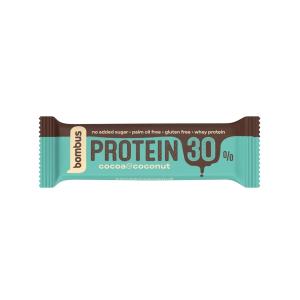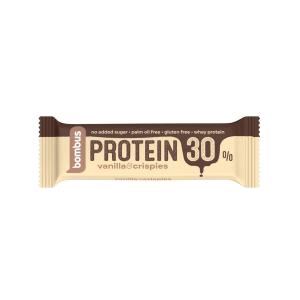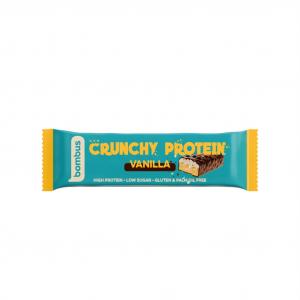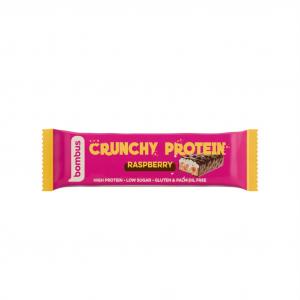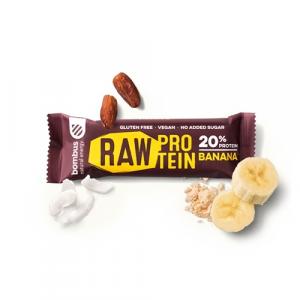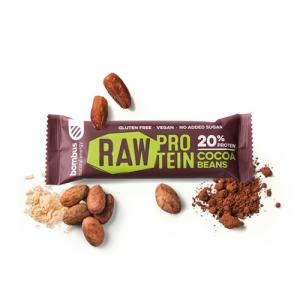
How Lactose-Free Protein Can Improve Your Health and Vitality

Why More People Are Choosing Lactose-Free (and Gluten-Free) Protein
In recent years, we have experienced a literal boom in interest in a healthier lifestyle. People are more concerned about what they eat, where their food comes from, and its impact not only on their health but also on the planet. In this context, the term lactose-free protein—and often gluten-free as well—is increasingly being mentioned.
Nutritional supplements, especially those high in protein, were once mainly associated with bodybuilders and professional athletes. Today, however, they have found their place in the everyday diet of people who want to strengthen muscles, lose weight, improve recovery, or simply supplement nutrients during a busy day. But what if regular whey protein causes digestive issues or simply does not align with your beliefs?
This is where lactose-free and gluten-free protein comes into play—a variant suitable not only for people with intolerance but also for those who want to enjoy a cleaner and more gentle form of protein.
Who is Lactose-Free Protein Suitable For?
Lactose, the milk sugar present in regular dairy products, is poorly digestible for many people. It is estimated that up to 70% of the adult population worldwide suffers from some form of lactose intolerance—and the Czech Republic is no exception. The symptoms? Bloating, cramps, diarrhea, or fatigue, which often occur after consuming dairy products or regular whey protein.
And what about gluten? It is completely excluded for people with celiac disease, but many others report feeling better after eliminating gluten—they have more energy, better skin, and easier digestion. Protein without gluten and lactose is thus an ideal choice not only for people with a diagnosis but also for those who want to avoid unnecessarily burdening their body.
Interestingly, the topic of the "best lactose-free protein" is actively discussed on various forums and in specialized groups. Discussions often feature questions about which protein to choose, which is the most digestible, which has good composition, or natural origin. Answers vary—simply because everyone may prefer something slightly different.
Plant-Based Alternatives
One of the most common ways to enjoy lactose-free protein is through plant-based proteins. Manufacturers now offer an incredible variety—from pea to rice, hemp, almond, and pumpkin seed protein. Each has its advantages and specifics. For example:
- Pea protein is high in essential amino acids and is filling.
- Rice protein is hypoallergenic and suitable for sensitive individuals.
- Hemp protein offers not only protein but also valuable omega-3 fatty acids.
- Pumpkin seed protein is very gentle on digestion and has a pleasant nutty flavor.
The fact that plant-based proteins are naturally free of gluten and lactose makes them a clear favorite for anyone who wants to eat cleanly and considerately—both for their body and nature. Especially vegans and vegetarians are increasingly turning to these alternatives—and it is definitely not a compromise. On the contrary, a quality plant-based protein today can offer a complete spectrum of amino acids and excellent absorption.
To illustrate with a specific example—in one of the popular community groups on Facebook, there was a recent discussion about which protein is most suitable for a woman in her thirties who exercises and has a mild lactose intolerance. Over 80 comments gathered within a few hours. The most commonly recommended was a combined pea and rice protein—for its high digestibility, neutral taste, and absence of allergens.
What to Watch Out For When Choosing?
Do not be fooled by marketing tricks. Some products are labeled as "lactose-free" but contain traces of milk. Others boast clean composition but add artificial sweeteners or flavors. If you are looking for the best lactose-free protein, read labels very carefully.
It is also important to consider what purpose the protein is supposed to serve. Do you need to supplement protein after a workout? Fill up between meals? Support muscle recovery or gain weight? Depending on this, the ideal ratio of macronutrients, consistency, and taste may differ.
For some people, transitioning to plant-based proteins can initially be challenging—especially due to different tastes or textures. Some prefer milder varieties, while others might adapt better to the earthier flavor of hemp protein. It is important to give your body time and try different options, ideally in smaller packages, until you find the right one.
Try our natural products
Discussions on Lactose-Free Proteins
On internet forums, in discussions, or on platforms like Reddit, the topic of "lactose-free protein discussion" appears very often—and it usually involves very practical questions. People share their experiences, proven brands, or tips on combinations with plant-based milk or fruit.
An interesting trend is the growing interest in organic and fair-trade variants. Many users no longer want just a "functional" protein but are also looking for ethical origins, sustainable agriculture, and minimal environmental impact. This, after all, aligns with the philosophy of stores like Ferwer, which are built on ecology, ethics, and a healthy lifestyle.
As well-known nutritionist Margit Slimáková says: "It's not about eating gluten-free or lactose-free at all costs—it's about eating in a way that makes sense for your body and lifestyle." And that is often the main motivation for those who choose a "cleaner" approach to nutrition.
Why Not Be Afraid of Change
Many people who have switched from regular dairy protein to a lactose-free and gluten-free variant describe improvements in digestion, disappearance of stomach pains, feeling less tired, and having more energy. And it's not just placebo—a body that is not burdened by allergens or hard-to-digest components can truly function more efficiently.
Moreover, today's market offers a really wide selection, so there is no need to compromise between taste and composition. There are even protein blends enriched with superfoods, such as maca, spirulina, or lucuma—which not only supplement nutrients but also add natural sweetness and flavor.
So if you are looking for a way to effectively supplement protein without side effects, protein without gluten and lactose might be the right path. Whether you choose pea, rice, or hemp protein, one thing is certain: today, you no longer have to choose between health and performance.
Just listen to your body and be open to new possibilities. And that's where the strength of modern nutrition lies—it gives us choices.
